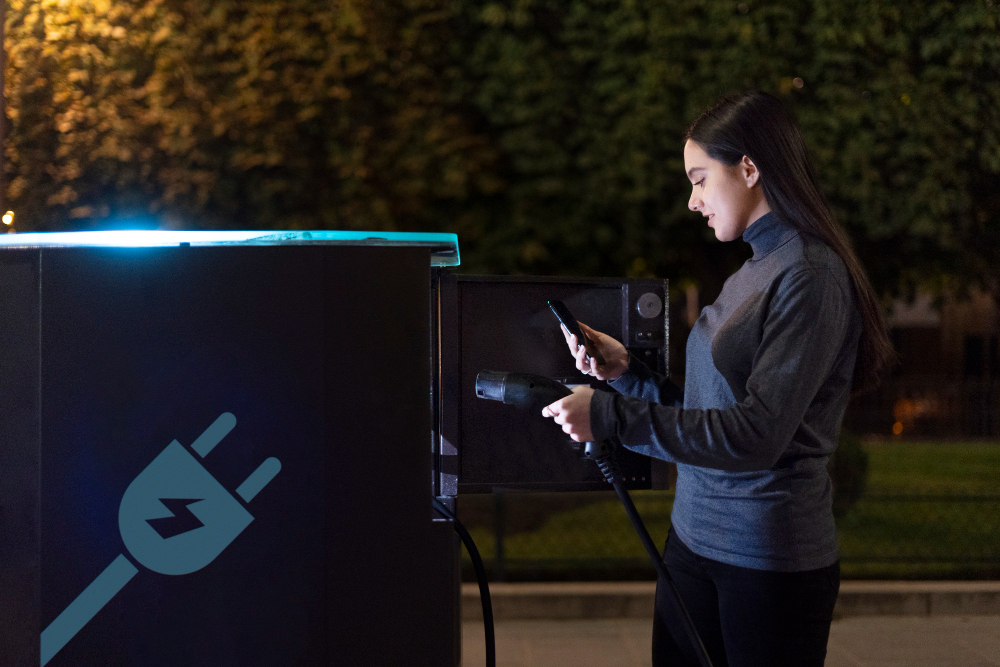Clean energy charging refers to the process of charging electronic devices or vehicles using electricity generated from renewable energy sources. Unlike traditional charging methods that rely on fossil fuels such as coal or natural gas, clean energy charging harnesses the power of renewable resources like solar, wind, hydroelectric, or geothermal energy. By utilizing clean energy sources, clean energy charging reduces carbon emissions and environmental impact, making it a more sustainable and eco-friendly option for powering devices and transportation.
Harnessing the Power of the Sun
One of the most popular forms of clean energy charging is solar charging, which utilizes photovoltaic panels to convert sunlight into electricity. Solar chargers are portable devices that can be used to charge smartphones, tablets, laptops, and other electronic devices using solar energy. They are especially useful for outdoor activities such as camping, hiking, or traveling, where access to traditional power sources may be limited. Solar charging is not only environmentally friendly but also cost-effective, as it allows users to harness free and abundant solar energy to power their devices.
Tapping into the Power of the Wind
Wind charging is another form of clean energy charging that utilizes wind turbines to generate electricity. Wind chargers are often used to charge batteries for off-grid applications, such as remote cabins, boats, or RVs. They can also be used to power small electronic devices or appliances directly. Wind charging is highly sustainable and renewable, as wind is a natural and abundant resource that does not produce greenhouse gas emissions or air pollution. However, wind charging may not be feasible for all locations, as it requires access to consistent and strong winds to generate significant power.
Utilizing the Energy of Moving Water
Hydroelectric charging harnesses the energy of flowing water to generate electricity. Large-scale hydroelectric dams are often used to generate power for electrical grids, but smaller-scale hydroelectric systems can also be used for clean energy charging. Micro-hydro systems, for example, use small turbines or waterwheels to generate electricity from streams or rivers. Hydroelectric charging is highly efficient and reliable, as water flow can be controlled and regulated to produce consistent power. However, it may require access to water sources and infrastructure for installation and operation.
Tapping into Earth’s Natural Heat
Geothermal charging utilizes heat from the Earth’s core to generate electricity. Geothermal power plants use steam or hot water from underground reservoirs to drive turbines and generate electricity for electrical grids. While large-scale geothermal power plants are typically used for grid-scale electricity generation, geothermal heat pumps can also be used for clean energy charging in residential or commercial settings. Geothermal charging is highly sustainable and reliable, as it relies on a nearly limitless source of heat from the Earth’s interior.
Environmental and Economic Advantages
Clean energy charging offers numerous benefits over traditional charging methods. By using renewable energy sources such as solar, wind, hydroelectric, or geothermal power, clean energy charging reduces carbon emissions and air pollution, helping to mitigate climate change and improve air quality. Additionally, clean energy charging reduces reliance on finite fossil fuels and volatile energy markets, leading to greater energy security and stability. From an economic standpoint, clean energy charging can also lower energy costs over time, as renewable energy sources become more affordable and accessible.
The Future of Charging
In conclusion, clean energy charging offers a sustainable and environmentally friendly solution for powering electronic devices and transportation. By harnessing renewable energy sources such as solar, wind, hydroelectric, and geothermal power, clean energy charging reduces reliance on fossil fuels and helps to mitigate climate change. Whether through solar chargers, wind turbines, hydroelectric systems, or geothermal heat pumps, clean energy charging offers a promising path towards a cleaner, greener future. By embracing clean energy charging technologies and practices, we can power our devices and vehicles while protecting the planet for future generations.
